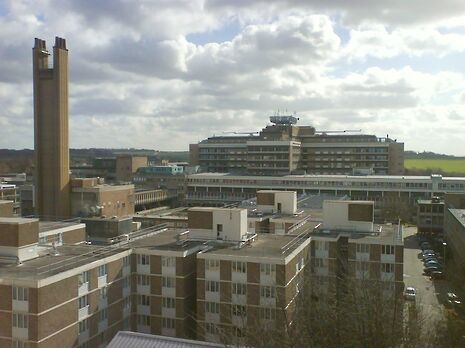Addenbrooke’s taken out of special measures
Cambridge University Hospitals Trust, which runs Addenbrooke’s Hospital, has had its rating changed from “inadequate” to “good”

The Care Quality Commission (CQC) has changed its rating for the Cambridge University Hospitals Trust (CUH) from “inadequate” to “good”, following an inspection carried out last September.
The Trust, which also runs the Rosie Maternity Hospital, is one of the largest in the UK and is globally renowned for the quality of its research and teaching. Addenbrooke’s also functions as the main trauma centre for the east of England. It celebrated its 250th anniversary last October.
The inspection dealt with eight main areas: urgent and emergency services, medical care, surgery, critical care, maternity and gynaecology, services for children and young people, end of life care, and outpatients and diagnostic imaging. Each of these were given an overall rating of “good” in the resulting report, published on Wednesday.
The report identified “a number of areas of outstanding practice.” It said that staff had responded well to the “wake up call” of being placed in special measures and “had worked hard to ensure improvement took place.”
The Trust had been placed in special measures after an inspection carried out in April and May 2015 exposed inadequate staffing levels, delays in outpatient treatment and governance failings.
Professor Sir Mike Richards, CQC’s Chief Inspector of Hospitals, wrote that while staff were “extremely caring and extremely skilled”, senior management had “lost their grip on some of the basics.” Quality of care was rated as “outstanding”, but “staff shortages meant that wards were struggling to cope with the numbers of patients within the hospital and that the critical care areas were not staffed in line with national guidance.”
Prior to the publication of the original report, CUH saw the resignation of two of its key management figures: Chief Executive Keith McNeil and Chief Finance Officer Paul James. Weeks before that, Myles Bradbury, a paediatric haematologist, had been sentenced to 22 years in jail for abusing 18 children while he was working at Addenbrooke’s.
In recent months, the Trust, which ran a deficit of £32.3 million last year, has been beset by further difficulties. Six babies were found to have been affected by an MRSA outbreak at Addenbrooke’s last September. A further outbreak of norovirus at the hospital in December forced the closure of two children’s wards. The outbreak came at a time of increased pressure on the hospital’s A&E department, with higher-than-usual numbers of patients leading to “capacity issues”.
Earlier this year, CUH also admitted “liability and causation” in the death of Joan Hawes, who died hours after her deep vein thrombosis was misdiagnosed as a ligament injury by medics at Addenbrooke’s.
Malcolm Lowe-Lauri, Executive Director of Cambridge University Health Partners (CUHP), released a statement in response to the CQC’s decision to change CUH’s rating. He said that the decision “reflects months of hard work within the Trust as new systems, ideas and procedures were introduced while supporting the outstanding treatment and care given by hospital staff.”
He stressed that the decision to upgrade the Trust’s rating was also crucial for academics, because “if we are to drive research into new treatments, we need strong and confident health partners. We can then make the most of the data, experience and talent which lie at our disposal in Cambridge.”
Jeremy Hunt also welcomed the announcement of the “incredible turnaround” in a tweet, offering “a huge well done to all staff.”
 News / Fitz students face ‘massive invasion of privacy’ over messy rooms23 April 2024
News / Fitz students face ‘massive invasion of privacy’ over messy rooms23 April 2024 News / Climate activists smash windows of Cambridge Energy Institute22 April 2024
News / Climate activists smash windows of Cambridge Energy Institute22 April 2024 News / Copycat don caught again19 April 2024
News / Copycat don caught again19 April 2024 Comment / Gown vs town? Local investment plans must remember Cambridge is not just a university24 April 2024
Comment / Gown vs town? Local investment plans must remember Cambridge is not just a university24 April 2024 News / Emmanuel College cuts ties with ‘race-realist’ fellow19 April 2024
News / Emmanuel College cuts ties with ‘race-realist’ fellow19 April 2024




